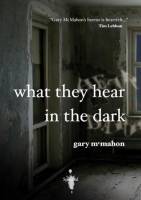As the year draws to a close, I’ve been thinking over all the books I’ve read and picking out my favourites. And here they are, my favourite dozen from the year (all published for the first time in 2010, or older books receiving their first UK publication this year) — in alphabetical order of author surname:
Robert Jackson Bennett, Mr Shivers
I didn’t know what to expect when I read this book, and it turned out to be a simply stunning debut. Bennett’s fusion of fantasy, horror and historical fiction is a smart book that uses its fantasy to comment on the period.
Shane Jones, Light Boxes
This tale of a balloon-maker’s war on February is constructed from story-fragments that add up to a marvellously strange whole. It works on about three different levels at once, but resists being pinned down to a single interpretation. A beautiful little jewel of a book.
Simon Lelic, Rupture
A perceptive and well-written novel chronicling the investigation into a school shooting committed by an apparently mild-mannered teacher.
Emily Mackie, And This Is True
A sharp study of a boy who has grown uncomfortably close to his father, and the pressures exerted on him when the life he has known begins to change.
Ian McDonald, The Dervish House
A near-future Istanbul is the setting for this sprawling-yet-elegant tale of six interlocking lives, and the wider structures and systems of which they are a part.
Paul Murray, Skippy Dies
A vast boarding-school comedy with added theoretical physics. Murray’s novel has huge ambitions, and achieves them brilliantly. It reads like a book half its length, and its sheer range is astonishing.
Véronique Olmi, Beside the Sea
A very strong launch title for Peirene Press, this is an intense study of a mother taking her two children to the seaside — an apparently ordinary surface that hides much darker depths.
Adam Roberts, New Model Army
This tale of armies run of democratic principles is both a cutting examination of warfare, and a novel that left me with a feeling that I genuinely cannot describe.
Ray Robinson, Forgetting Zoë
The very powerful story of a girl’s abduction and captivity. Exquisite prose, acute characterisation, and masterfully-controlled narrative flow.
Amy Sackville, The Still Point
Winner of the John Llewellyn Rhys Prize, and deservedly so. An intense and beautifully written novel of Arctic exploration and the parallels between two couples living a century apart.
Nikesh Shukla, Coconut Unlimited
One of the funniest books I read all year, this tale of three Asian boys at an otherwise all-white public school is also an acute portrait of adolescence and the ways in which people try to build identities for themselves.
Charles Yu, How to Live Safely in a Science Fictional Universe
A novel that ably switches states between time-travel metafiction and examination of its protagonist’s relationship with his father, interrogating and blurring genre boundaries as it goes.
And three great reads from previous years…
Liz Jensen, The Rapture (2009)
The brilliant tale of the mental chess-game between a psychotherapist and her patient who can apparently predict disasters — which proves equally adept at being a thriller in its later stages.
Christopher Priest, The Affirmation (1981)
A man begins to write a fictionalised autobiography… and an account by a version of himself in a different reality vies for space in the same book — which, if either, is ‘real’? Nothing is certain in this novel by the reliably excellent Priest.
Marcel Theroux, Far North (2009)
A beautiful story of survival and endurance set in a near-future Siberia.
 The first of our new
The first of our new  Birds appear again, though in a rather different context, in Nightjar’s other new chapbook.
Birds appear again, though in a rather different context, in Nightjar’s other new chapbook. 
 Tomorrow is
Tomorrow is  One of the things for which fantastic fiction is particularly good is dramatising metaphors – and, more than that, creating texts that can be read equally productively at both metaphorical and literal levels (Mr Shivers by Robert Jackson Bennett is a good example from earlier this year). Charles Yu’s debut, How to Live Safely in a Science Fictional Universe, does this, but it also goes further, dramatising science fiction itself as a literary mode.
One of the things for which fantastic fiction is particularly good is dramatising metaphors – and, more than that, creating texts that can be read equally productively at both metaphorical and literal levels (Mr Shivers by Robert Jackson Bennett is a good example from earlier this year). Charles Yu’s debut, How to Live Safely in a Science Fictional Universe, does this, but it also goes further, dramatising science fiction itself as a literary mode.
Recent Comments